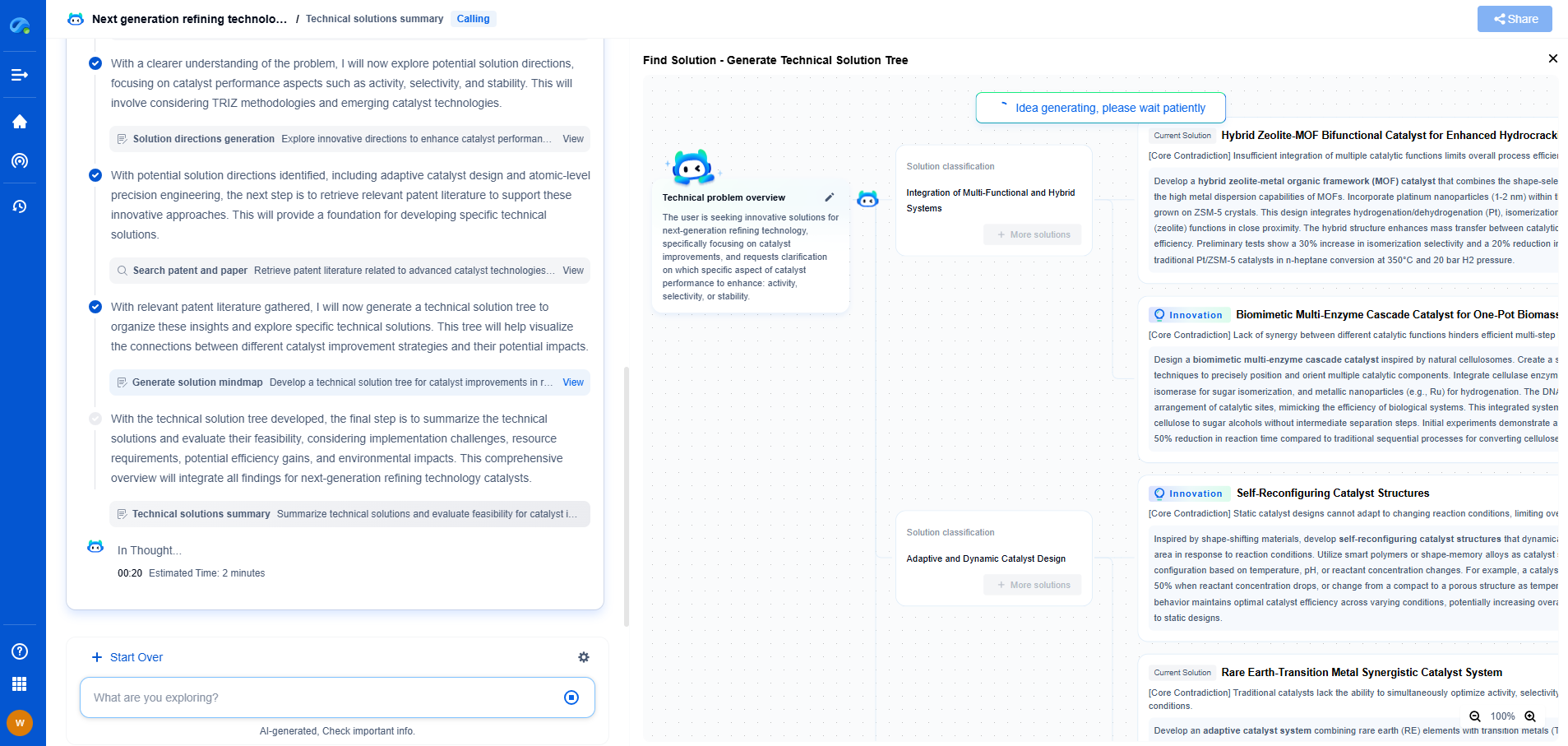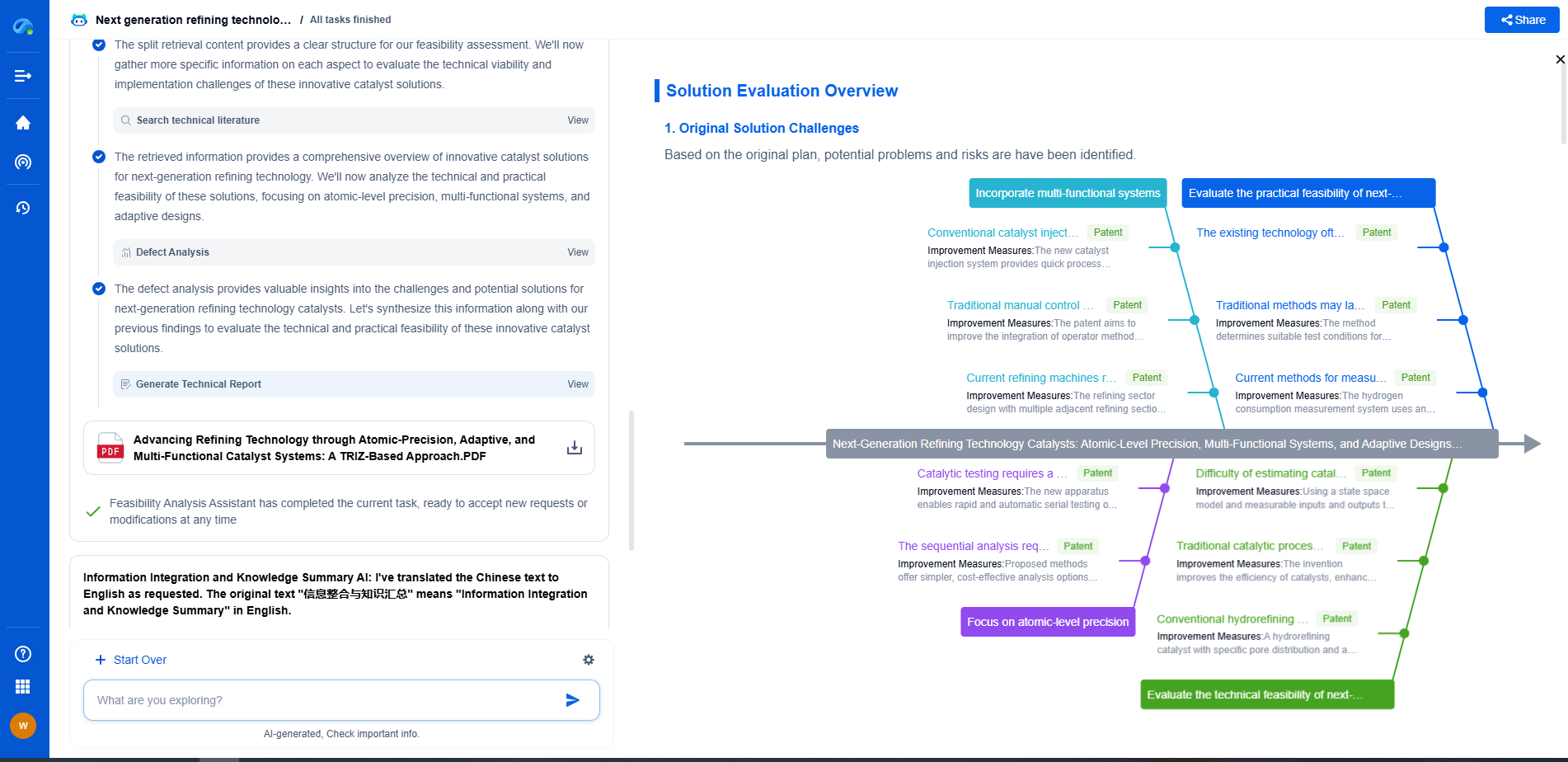Cloud vs. Local Storage: Pros and Cons for Measurement Data Management
JUL 17, 2025 |
Measurement data management is an essential aspect of many industries, from scientific research to manufacturing. With the growing volume of data, choosing the right storage solution becomes crucial. Two popular options are cloud storage and local storage. Each has its advantages and disadvantages, making it important to weigh them carefully based on specific needs.
Cloud Storage for Measurement Data
Advantages of Cloud Storage
1. **Scalability**: Cloud storage offers virtually unlimited scalability, allowing businesses to expand their storage capacity as needed without the need for additional physical hardware. This is particularly beneficial for organizations handling large volumes of measurement data that may fluctuate over time.
2. **Accessibility**: One of the most significant benefits of cloud storage is the ability to access data from anywhere with an internet connection. This is ideal for teams working in different locations or for fieldwork, as it ensures that data can be retrieved and analyzed in real-time.
3. **Cost-Efficiency**: Cloud storage eliminates the need for purchasing and maintaining expensive hardware. Many providers offer flexible pricing models, allowing organizations to pay only for the storage they use, which can lead to significant cost savings.
4. **Data Backup and Recovery**: Cloud storage solutions often include automated backup and disaster recovery options. This ensures that data is not only safe but can be quickly restored in case of accidental loss or system failures.
Disadvantages of Cloud Storage
1. **Dependence on Internet Connectivity**: Cloud storage relies on a stable internet connection. Poor connectivity can hinder data access and result in delays, which may be problematic in time-sensitive operations.
2. **Security Concerns**: Storing data offsite always comes with security risks. Although cloud providers invest heavily in security measures, data breaches and unauthorized access remain potential threats, necessitating robust security protocols.
3. **Ongoing Costs**: While cloud storage can be cost-efficient, ongoing subscription fees can add up over time. These recurring costs need to be factored into the long-term budgeting of any organization.
Local Storage for Measurement Data
Advantages of Local Storage
1. **Control and Security**: Local storage provides complete control over data and security measures. Organizations can implement custom security protocols and ensure sensitive data remains within their premises, reducing the risk of external breaches.
2. **Reliability and Speed**: Local storage solutions often offer faster data retrieval speeds compared to cloud storage, as they do not rely on internet connectivity. This ensures consistent performance and quick access to data.
3. **One-Time Investment**: While the initial cost of setting up local storage can be high, it is typically a one-time investment. Over time, this can be more cost-effective compared to the recurring fees associated with cloud storage.
Disadvantages of Local Storage
1. **Limited Scalability**: Expanding local storage capacity requires purchasing additional hardware, which can be costly and may require additional space and maintenance.
2. **Accessibility Challenges**: Accessing data stored locally can be difficult for remote teams or when offsite. This can hinder collaboration and delay decision-making processes.
3. **Risk of Data Loss**: Without proper backup solutions, local storage is vulnerable to data loss due to hardware failures, natural disasters, or other unforeseen events. This underscores the importance of investing in reliable backup systems.
Conclusion
Choosing between cloud and local storage for measurement data management depends on the specific needs and resources of an organization. Cloud storage offers flexibility, scalability, and cost savings, making it ideal for collaborative and dynamic environments. On the other hand, local storage provides enhanced control, security, and reliability, which may be preferred for sensitive data and environments with stable data volume. Evaluating these pros and cons can help in making an informed decision that aligns with the long-term objectives and operational demands of your organization.
Whether you’re developing multifunctional DAQ platforms, programmable calibration benches, or integrated sensor measurement suites, the ability to track emerging patents, understand competitor strategies, and uncover untapped technology spaces is critical.
Patsnap Eureka, our intelligent AI assistant built for R&D professionals in high-tech sectors, empowers you with real-time expert-level analysis, technology roadmap exploration, and strategic mapping of core patents—all within a seamless, user-friendly interface.
🧪 Let Eureka be your digital research assistant—streamlining your technical search across disciplines and giving you the clarity to lead confidently. Experience it today.
- R&D
- Intellectual Property
- Life Sciences
- Materials
- Tech Scout
- Unparalleled Data Quality
- Higher Quality Content
- 60% Fewer Hallucinations
Browse by: Latest US Patents, China's latest patents, Technical Efficacy Thesaurus, Application Domain, Technology Topic, Popular Technical Reports.
© 2025 PatSnap. All rights reserved.Legal|Privacy policy|Modern Slavery Act Transparency Statement|Sitemap|About US| Contact US: help@patsnap.com

